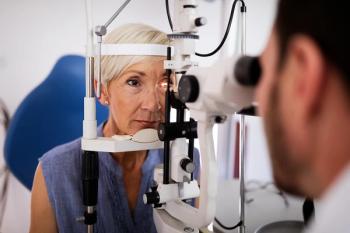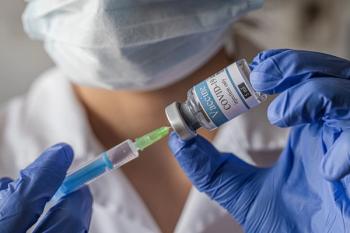
AOA 2024: Implementing a DEI perspective from the chair
Charissa Lee, OD, MBA, FAAO weighs in on the important role a diversity, equity, and inclusion perspective can play in leadership roles in optometry.
Having discussions about diversity, equity, and inclusion in your practice can be as simple as sharing different perspectives as a team, according to Charissa Lee, OD, MBA, FAAO. She talks about the important part that a DEI perspective can play in leadership roles in optometry at AOA's Optometry's Meeting.
Video transcript
Editor's note: This transcript has been lightly edited for clarity.
Charissa Lee, OD, MBA, FAAO:
Hi, I'm Dr. Charissa Lee, head of Professional Affairs at Johnson & Johnson. We had a really great event. Part of it was in celebration of Juneteenth, so that timing was perfect to talk about allyship as a leadership skill. And this is really in the quest to amplify the conversation and really spotlight sometimes some hard conversations about diversity, equity, inclusion, including allyship, and how we, as a profession, and colleagues can help the discussion in service of our community and service of our patients, and in service of lifting each other up. Allyship in a professional setting, what it looks like, is being aware sometimes of our unconscious biases. So it's really about thinking, “How do we think? How do we see other people?” And of course, we're always going to have our own biases from the time that we were young and growing up, and that's okay. But it's recognizing them and thinking about how can I be an ally, how can I be a strong voice in the position that I have, and then continue to lift others up, those maybe who are coming into the profession and just starting, or even having that conversation with our own colleagues?
Allyship as a leadership skill is really important, because I think as we think about growing as leaders, whether that's in our own practices, or even amongst a larger scale and as a professional group, I think thinking or really hearing other voices, other opinions, just listening to other people is so important, because of how we lead, we don't just lead ourselves. And so having other voices in that conversation is important, as we think about where we're going, how we can make more impact in our communities, and even in our practices.
At Johnson & Johnson Vision, we are committed to supporting diversity, equity, and inclusion and boosting the visibility of underserved communities, and really trying to mirror the representation of minority communities within the profession of optometry. And that is our commitment, we will continue to do this, and we are excited to have further conversations.
People who practice in rural areas, and they might not see diversity, I'll say just as a race or ethnicity, it, I would say diversity is more than just a skin color. So it's how you were brought up: Are you the middle child? Are you the older child? Having those conversations with our patients about how they think about things if they were brought up? One of the one of the topics that was brought up was about are you left handed, or are you right handed. Some of those types of things can create a diverse perspective, so it really is not just about the color of your skin, but it's also about who you are as a person. So were you born maybe in a different state, or were you born in a more urban area and now you're living in a rural area, or even some of the backgrounds that you.
These types of discussions we've our industry forward because sometimes it's a hard conversation that we're not talking about out loud. It's also because of awareness. So some people are not aware of some of the biases that we have and they might be happening even in our own practices. Sometimes the conversations of whether you are a female or a male and some of the biases that happen in that aspect, or some of our own, I'll say what we put on ourselves or how we even think about ourselves. So I think it's just an important conversation to have all around.
So I love the discussion that we had from our panels. So our vice president of sales, Carlos Salazar, led the conversation and served as moderator but we had a diverse perspective of voices. So we talk to Lydia Holland, who is an incoming student in the fall — incoming optometry student — and it was so interesting to hear her perspective on how she got interested in the profession. We also had Dr. Essence Johnson, Dr. Jacobi Cleaver, and Dr. Darryl Glover from Black EyeCare Perspective, and also what they're doing in this space to think about how do we amplify the understanding that optometry is such a great profession to step into to those who may not have been exposed to a doctor of optometry. So it was a great discussion about what we can do tomorrow to amplify the discussion and have that discussion around diversity; again, whether it's the color of your skin, whether it's where you were born and raised, or how you think, it was a great discussion all around.
Newsletter
Want more insights like this? Subscribe to Optometry Times and get clinical pearls and practice tips delivered straight to your inbox.




























